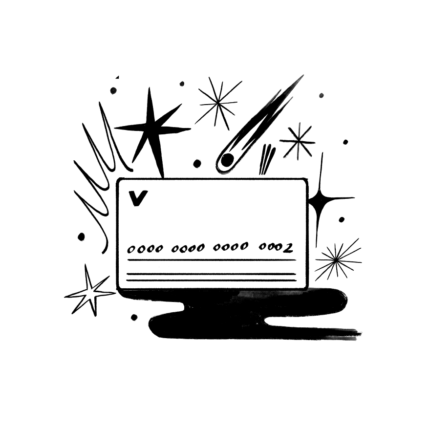The start of the pandemic coincided with the collapse of the longest economic expansion in US history, leaving us to ponder this difficult question: When will the economy recover?
The COVID-19 pandemic has sent shockwaves through world economies. Experts predict we could be slipping into another deflationary period in the U.S., which means prices for everything from consumer goods to home values will drop. That may seem like a good thing but, in reality, deflation causes people to wait to see if prices will drop, even more, postponing their spending further.
That’s when the real problem arises—a recession or, worse, depression.
The Great Recession of 2007-10 shocked a generation of millennials just entering the workforce. The Great Depression left a lasting impression on the generation that raised Baby Boomers. What can we do to get through another one and come out the other side as unscathed as possible?
Before you panic, remember that necessity is the mother of invention. Now is probably the most ideal time for you to prepare your finances for a possible long-term win. As we like to say: hope for the best, prepare for the worst.
10 Steps to Take Now to Protect Your Finances for Later
Susannah Snide, the Senior Editor for Personal Finance at U.S. News and a certified financial planner, and Rick Newman, author of Rebounders: How Winners Pivot From Setback to Success shared some things that we can do now to protect our money in a deflation. Here’s how we’re breaking down the experts’ advice.
No. 1- Pay off debt (and fast).
Many people don’t realize that as deflation occurs, financial institutions have to adjust interest rates in order to maintain profits. Therefore, they may increase the amount due each month on any debts like those associated with credit cards, home mortgages, or car loans.
Do your best to start paying down your debts now while keeping an eye on income-sensitive repayment options. And of course, avoid adding any more personal debt if you can find other ways to pay for things you need.
No. 2 – Maintain emergency savings.
A Bankrate survey (pre-dating COVID-19) revealed that almost one in four Americans had no savings put away for emergencies, let alone the three months experts recommend. At any time, a minor emergency can happen, forcing you to reach for your credit cards.
Having built up some funds in a savings account will allow you a safety net if something expensive comes down the pike. You will just have to pay yourself back and not some credit card company plus interest and late fees.
No. 3 – Avoid the compulsion to spend.
Sure prices are dropping, but this is not the time for a shopping spree. Take a 30-day vacation from spending on anything that you can live without. Doing so will take discipline, but at the end of the month, you will be proud of yourself for having less stuff and more money in your pockets.
No. 4 – Don’t anticipate a shopping spree.
The CARES Act stimulus check that rolled out earlier this year was a welcome boost to many qualifying-folks’ income. Now, there’s talk of a second stimulus check in Congress. It may be tempting to start dreaming up ways to blow this cash, but don’t do it! Instead, put the money where you cannot use it for frivolous expenses, like your retirement savings or health savings account (HSA).
No. 5 – Expect rejection.
Employers are not in a position to start issuing bonuses and wage increases. If you haven’t been impacted by recent layoffs and downsizing, count yourself lucky—especially if your job offers safe working conditions, decent pay, and benefits. There will be time to make career changes later.
No. 6 – Pursue a side gig.
If you have the bandwidth, it may be a good time to consider taking up a part-time job at your local grocer or consider driving for Uber or delivering food for Postmates. And remember: none of these things needs to be permanent, but they could be a good way to stockpile a bit of cash should things go south.
No. 7 – Now’s not the time for real estate investing.
Snide and Newman point out that it’s not the best time to buy a home right now. They told US News, “Deflation could perpetuate a housing bust, so spend the minimum amount you need to be comfortable, and save the extra money for investments that are more liquid and less risky.” In other words, now is not the time to be buying your dream home.
No. 8 – Anticipate your stocks taking a hit.
The stock market is volatile and investing in them can mean values will drop dramatically. That’s part of the appeal for those who like taking risks and cashing out fast. And don’t be fooled by the market’s somewhat steady performance during the pandemic. The other shoe always drops. Just remember, slow and steady wins the race.
No. 9 – Buy U.S. Bonds.
In times when the economy has been uncertain, Americans have always been asked to purchase U.S, Savings Bonds. Essentially, you are buying the government’s debt, and you can cash out with interest earned at a predetermined future date. It’s another tax-free option for protecting your income that is far less volatile than the stock market. But, be forewarned, you need to be ready to invest for the long haul.
No. 10 – Increase your market value.
This is a good time for increasing your own value in the workplace by investing in education. Take inventory of any skills you have and how you can brush up on them or add new ones. The good news is that there are many free sources for gaining an education remotely these days.
Ultimately, the best course of action is to be mindful of how and where you are spending your income and finding ways to save money for the future. Using your HSA is a smart way to put money into tax-exempt savings, which helps you cover any health-related expenses during uncertain times.



